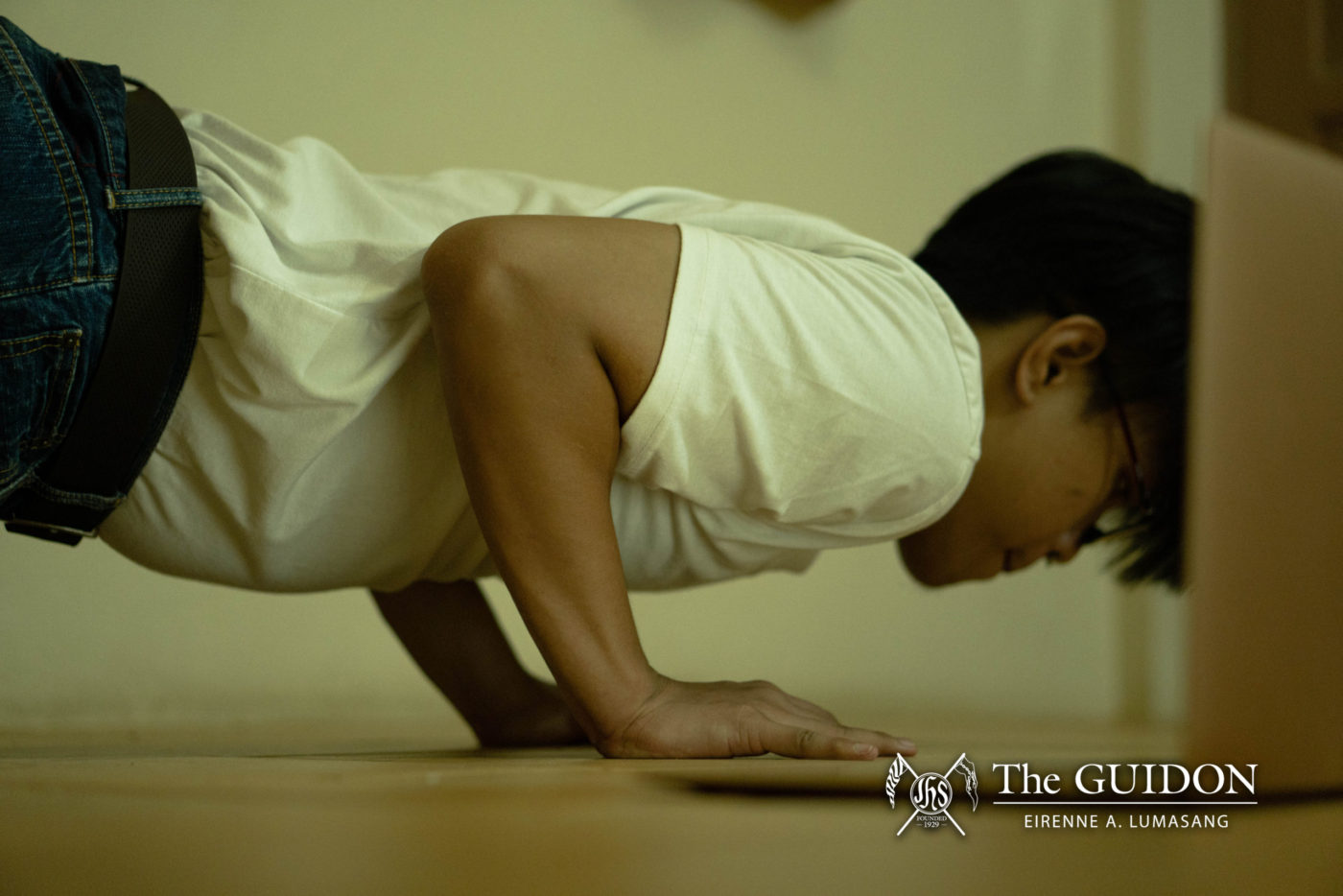SERVICE IS often stereotyped as going on outreaches and providing relief goods to marginalized communities. However, the meaning of service has since evolved to keep up with the current national context. Today, there are other ways that students may provide service for their community through programs set by their schools.
One of these is the Reserve Officers’ Training Corps (ROTC) program under the National Service Training Program (NSTP). Through this program, college students are able to deepen their knowledge on the military’s different processes and routines. By instilling a sense of discipline and nationalism in students on the tertiary level, the program also teaches them on the “vital role” of the youth in nation-building.
Although designed to instill a sense of service and nationalism among students, the ROTC program remains a wild card as it attempts to translate its goals in the online setting and the fraught political climate.
Reading into ROTC
The rationale of the ROTC program can be found in Republic Act No. 7077 or the Citizen Armed Force or Armed Forces of the Philippines (AFP) Reservist Act of 1991. This allows the country to expand the regular military force with the “well-disciplined” Citizen Armed Force, alternatively known as the Reserve Force, of the AFP “in the event of war, invasion or rebellion.”
Pursuant to the Act, colleges and universities are required to have an established Reserved Officers’ Training unit. Until 2001, all tertiary level students were mandated to undergo the basic ROTC program “for the purpose of producing enlisted and officer reservists.” Meanwhile, the advanced program was left voluntary.
Graduates of the ROTC program are then able to serve as members of the AFP. Ateneo de Manila University cadets, in particular, become part of the Philippine Air Force’s (PAF) Reserve Force after graduating the program.
Recognizing the responsibility of all citizens to defend the country’s security—both through military and civil means—the ROTC program was integrated in Republic Act No. 9163 or the NSTP Act in 2001. Following reports of corruption in the program, the Act made the program entirely optional and voluntary in colleges and universities.
In the Ateneo, the ROTC program is divided into two parts: Air Science 1 and Air Science 2, which each span one semester. Under Air Science 1, cadets are briefed on the purpose of the ROTC program and the military laws in the Philippines. On the other hand, Air Science 2 focuses on the application of the lessons from Air Science 1. Thus, cadets undergo drills and ceremonies as done in the PAF.
Given such activities, the ROTC program usually piques the interest of those who are interested in the military. However, the majority of people tend to gloss over the fact that this program also teaches life skills that cadets can use outside of the military.
Personal ammunition
The notion of service is embedded in the Ateneo’s Ignatian value of cura personalis, which talks about caring for the whole person.
In the spirit of cura personalis, Citizen Military Training Coordinator Noelle R. Flores says that the ROTC program also emphasizes the formation of the entire self, contrary to popular opinion that it is only about military training. Throughout the course of the program, cadets are taught a wide range of topics such as gender sensitivity.
Thus, for C/CPT JAEANE SHANE V SANTOS 2Cl Shane Santos, the program was a way for her to discover and cultivate a greater sense of service and responsibility. According to her, “The [cadet officers] teach cadets about the military. They’re exemplifying this character that they have a great sense of service. I want to be like that as well.”
Extending the notion of cura personalis beyond the self, Flores also believes that the program can shape students to be good citizens through its emphasis on service for the nation. According to C/LTC MARIELLE G MONTERO 1Cl, the “service” aspect of the program is taught in a way that the students learn to serve while also keeping the aspect of Ignatian formation. Thus, students are taught topics such as heraldic code, disaster literacy, and civil military operations.
Despite the alignment of the program with such spiritual ideals, the ROTC has also faced its fair share of controversial issues due to the current political context.
Retaliating rumors
To date, the ROTC program remains mired in issues of militarization. Amid the fraught sociopolitical climate, netizens have slammed the program for making “people more subservient to the government,” instead of teaching them discipline and nationalism as stipulated in the law.
In response, Cadet Corps Commander Montero says that each and every one of the officers does have their own beliefs and opinions. However, they remain neutral as officers within the context of the ROTC program.
According to C/CPT LANCE JOHANN O BELLAS 2Cl, “In the modern political context, there are no fears of militarization because overall, the people who are teaching you are still students with the same mindset as you.”
Furthermore, Flores states, “We intentionally parang avoid talking about or voicing our opinions because it can be taken against ROTC. Baka ibang context ang interpretation, or sa ibang tao iba yung basa nila (The interpretation may have a different context, or different people may have different readings). We try to remain apolitical. We also make sure we have these checks and balances among us.”
Regardless of the sociopolitical context, Flores assures that their mission has never changed. They will continue to remain aligned with the goals stated in the National Defense Act, as well as the NSTP Act. Thus, cadets learn to take on the idea of cura personalis, and widen its context to not just persons for self-and-others, but for everyone in the nation.







